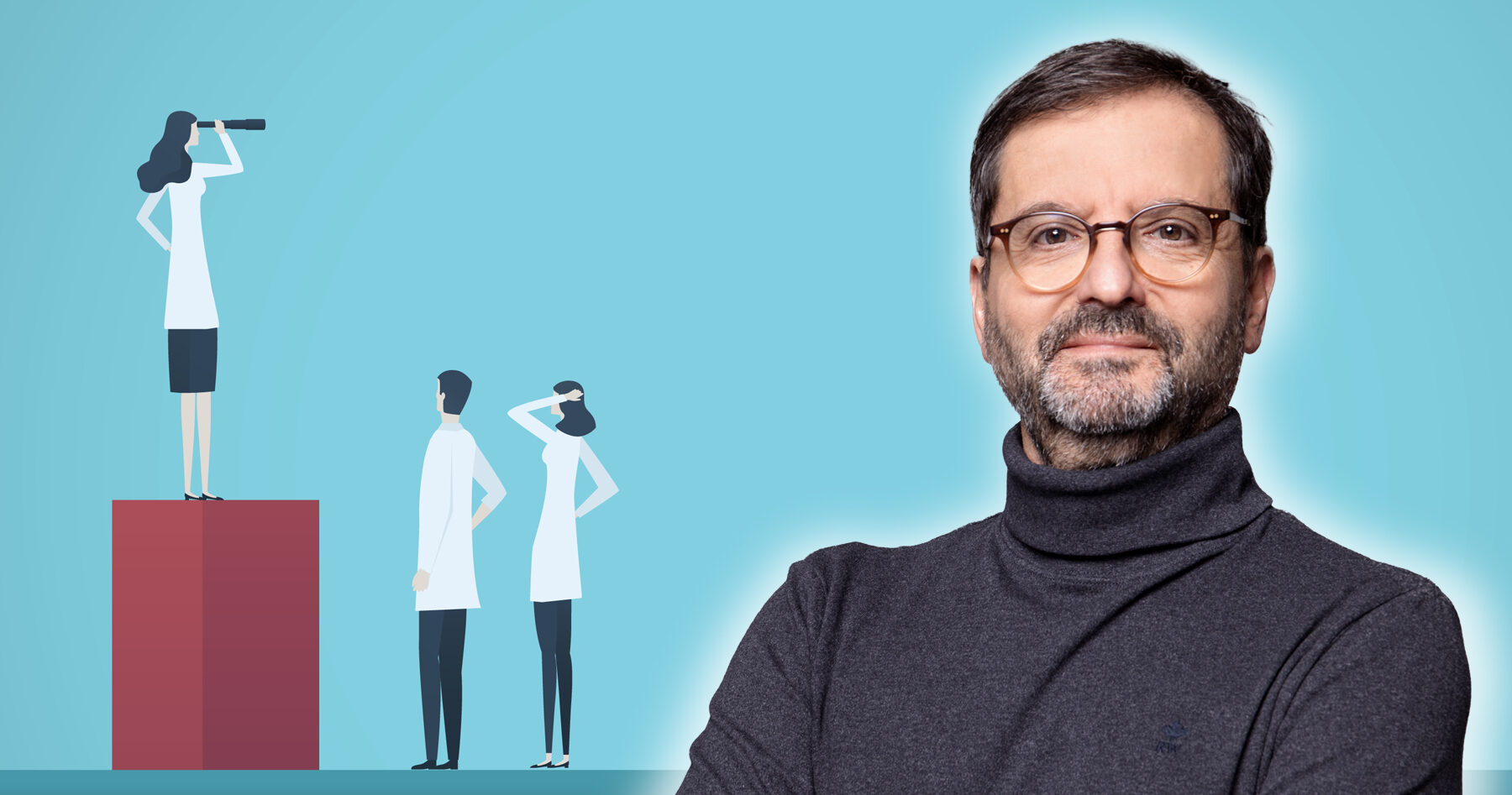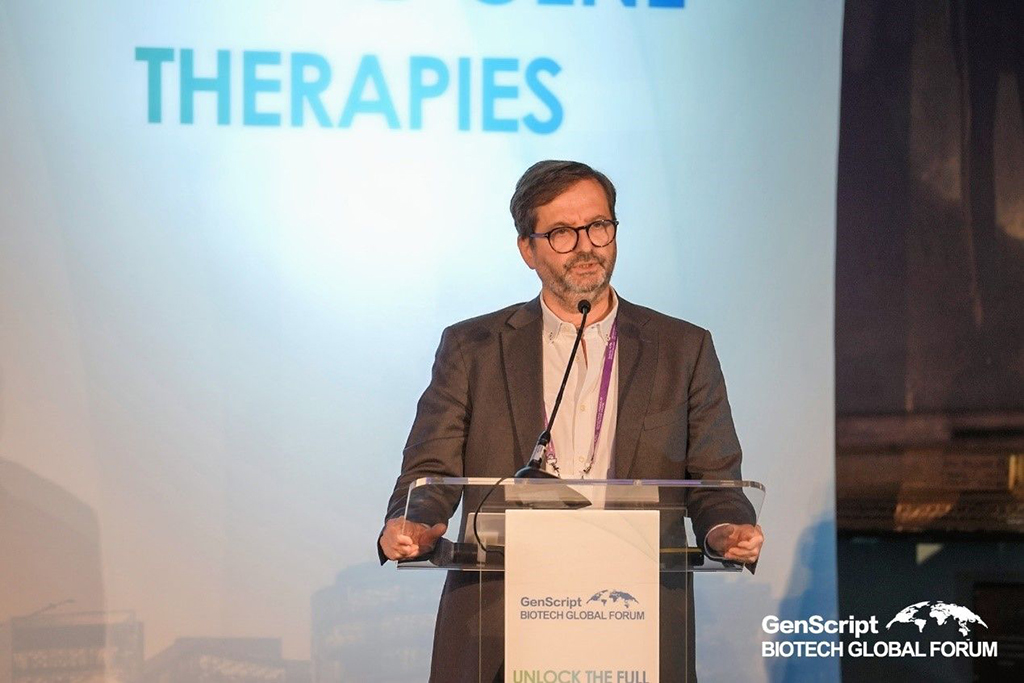Belief Drives Success and Teams Make It Possible.
By Sofia Prado-Irwin, PhD

Dr. Miguel Forte’s illustrious career spans decades of work in medicine, academia, regulation, and business. He has held countless leadership positions, including top executive roles at companies and organizations including Kiji Therapeutics, StemBond, Bone Therapeutics, and Zelluna Immunotherapy, among numerous others. He currently serves as the President and Board of Directors Chair of the International Society of Cell and Gene Therapy (ISCT). He leads teams from fundraising and strategy to product development, facilitates collaboration across the cell and gene therapy (CGT) industry, and guides advancements in CGT research and innovation.
Orange County Bio spoke with Dr. Forte about his extensive experience as a leader in the CGT industry.
The Interview
Orange County Bio (OCB): How do you inspire different types of teams, from individual companies to the broader CGT community?
Miguel Forte (MF): The final objective is the same—it is bringing value to patients. But the day-to-day work is different.
If you are a leader in a company, you’re very focused on the task at hand, optimizing the product and bringing value to patients. Your sense of urgency is essential.
For my role at ISCT I take a broader perspective. I am a facilitator, and I focus on creating the right conditions, enabling communication, and engaging a broader community with a lot of diversity.
OCB: What qualities do you seek in your team members, and how do you foster the collaboration and innovation?
MF: Science only happens if the teams make it happen. It is essential to have the right people engaged. If your team doesn’t believe in what you’re doing, you’re not going to get there. They need to understand that they’re part of the team, they’re engaged, they’re sharing.
We need soft skills and hard skills. We need to really share the vision and get excited, and a lot of that comes with soft skills. Hard skills are important, having the right knowledge and the right experience, but you also must be able to learn, be humble. But be firm in your opinion. Resilience and persistence are essential.
OCB: How do you maintain positive energy as a leader of a company and a professional society?
If you believe in what you’re doing, you will endure all the challenges.
MF: Biotech is a roller coaster, you have ups and downs. You need to believe in your technology, your team, and your vision. If you believe in what you’re doing, you will endure all the challenges.
And you can only do this if you’re surrounded by people that share the belief and the vision. Whenever I feel down, engaging with the team, finding solutions together and sharing that energy is what really keeps me going.
People sometimes say the leader needs to hide his feelings and carry the team. I don’t agree with that. I think a leader needs to be candid to the team, but needs to push forward and feed on the energy that the team brings. Energy is a bilateral flow between leader and team.
OCB: Reflecting on your success as a leader in CGT and beyond, how do you pave it forward?
MF: Understand the individual, their growth needs, and their contributions. Find what suits them well, what drives them. You can do that easily in a [smaller] organization when you’re the manager, but it is a lot more challenging in big organizations, like ISCT, with political elements and other considerations. But in both cases, it is the same principle—understand what drives people and frame it in a way that rewards them, lets them grow, and drives them to the shared vision together.

Dr. Miguel Forte, President of ISCT, ARM Board Member, and CEO of Kiji, delivering a keynote at GenScript Biotech Global Forum in London.
OCB: How have you navigated setbacks and challenges in your career thus far?
MF: The key element is to be prepared, understanding that you will fail sometimes and you will learn from it. It is never easy—but not being easy is part of what gives you the satisfaction of achieving.
The first reaction is you don’t believe it. But then you say, “Okay, it’s happening. How do I manage this? How do I solve this?” Do the post hoc analysis of why it happened. What could I correct?
Remind yourself that you are not alone in this. If you fall, you need your own muscles to get up, but you will do it better if someone helps you.
As a leader, think about those you carry, because your example will impact them.
As a leader, think about those you carry, because your example will impact them. And keep your nerve and persistence. If you believe in what you’re doing, if it is bringing value, then you have to endure the rocky bits to get to the nice bits in the end.
OCB: What legacy do you aspire to leave behind in CGT?
MF: [I want] to improve the generation of new products in CGT for the benefit of patients globally. I want to foster that global perspective within ISCT in an ethical manner. Even if I contributed a small piece to raising awareness and bringing about that discussion, then I would have done my duty.
OCB: What is your advice for emerging leaders within the field?
MF: First, understand what motivates you. Go for the choice you believe in, but accept variability and adaptability and that choice. Hone your destiny.
Second, talk, learn and engage. Own your decisions, but get advice to guide them. The best decision is the one that has taken a lot of advice into account.
Finally, always keep to your vision, and always have fun.
In Reflection
Dr. Miguel Forte has distilled decades of experience into a strong cell and gene therapy (CGT) leadership philosophy. Successful leaders in CGT must navigate a rapidly evolving landscape, balancing scientific innovation, regulatory challenges, and team dynamics. Resilience, teamwork, collaboration, and adaptability are essential to overcoming obstacles and driving progress. True leadership extends beyond individual achievements—it involves fostering strong teams, building supportive networks, and inspiring others to push the boundaries of what is possible in CGT.
